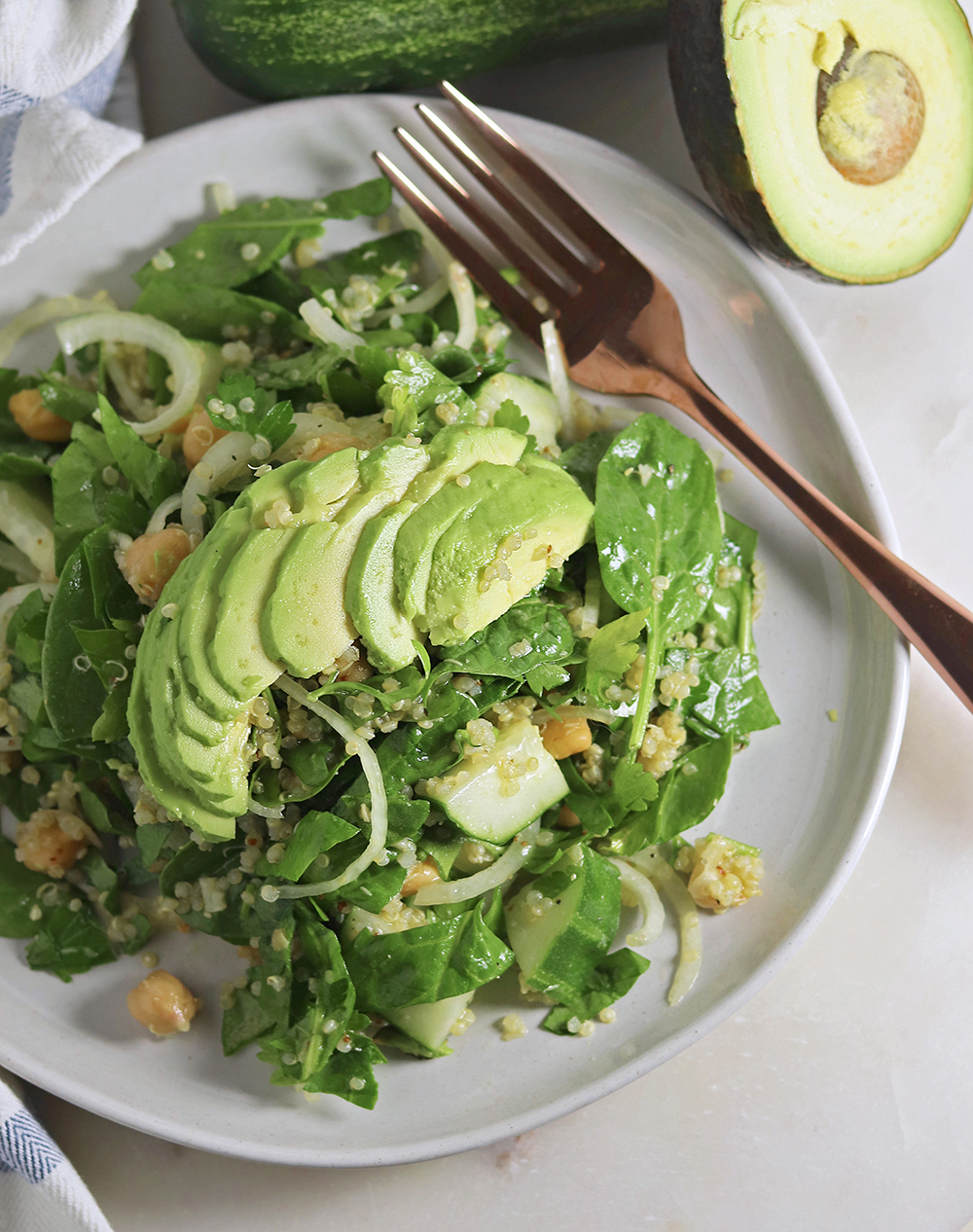Looking for a quick, filling plant based salad? Look no further! This Quick Protein Packed Spinach Salad comes together in 20 minutes and is chock full of green veggies, protein, and healthy fats!
I often find myself at the end of the day looking at what I’ve eaten and there’s usually a few things I need – more protein, and more greens. For that reason, I’ve developed a lot of ways to quickly whip something up that has greens & beans. I’ll make some kind of lentil or bean dish and pour it over spinach, mix kale with baked sweet potatoes & roasted chickpeas, or I’ll throw together a little spinach salad like this one!
Why You Should Be Eating Greens Every Day
Most nutritionists and government ‘dietary guidelines’ suggest consuming 9 servings of fruits & veggies per day! This equates to roughly 3 full cups of fresh vegetables each day. If you’re cooking them, its 1.5 (they cook down). Most Americans don’t get nearly enough fruits & vegetables in their diets – it is vitally important to eat these nutrient dense foods to keep our bodies in tip top shape. These don’t HAVE to be leafy greens, but let me tell you why at least some of that should be be leafy greens. Click here to read about VEGAN MAPLE CORNBREAD.
Types Of Leafy Greens
- Spinach
- Kale
- Arugula
- Bok Choy
- Broccoli & Broccolini
- Collards
- Mustard Greens
- Dandelion Greens
- Romaine Lettuce
- Swiss Chard
- Turnip, Beet, Radish, Carrot, etc. Greens
- Cabbage (all types)
- Microgreens
- Watercress
- Endive
Most grocery stores also offer ‘baby’ versions such as Baby Spinach, Baby Bok Choy, Baby Kale, etc. that are less bitter and more tender. All of these can be eaten raw, wilted, or sautéed to your liking. If you are really pressed for time, you can easily purchase bags or containers of pre-washed baby spinach and add a handful to every meal (green smoothies, spinach salad, under bean dishes, stuffed into baked sweet potatoes, etc.)
Benefits Of Eating Leafy Greens
All dark leafy greens are low in calories, high in fiber, and are extremely nutrient dense!. They’re especially known for their high content of vitamin K, which helps build bones and assists with blood-clotting. They are also high in folate, which protects against birth defects. Research suggests that the antioxidant content of dark leafy greens may protect against chronic illnesses like heart disease and some types of cancer (especially if you eat at least two to three servings a week!)

